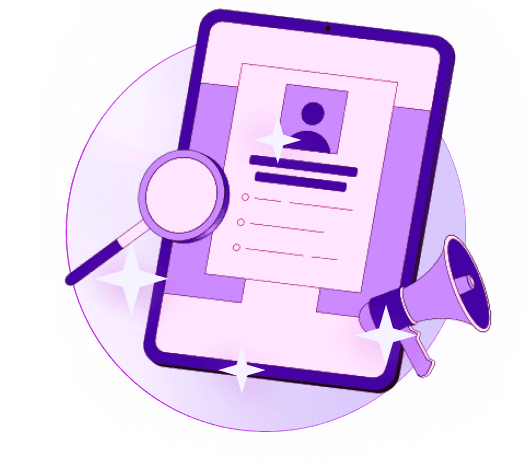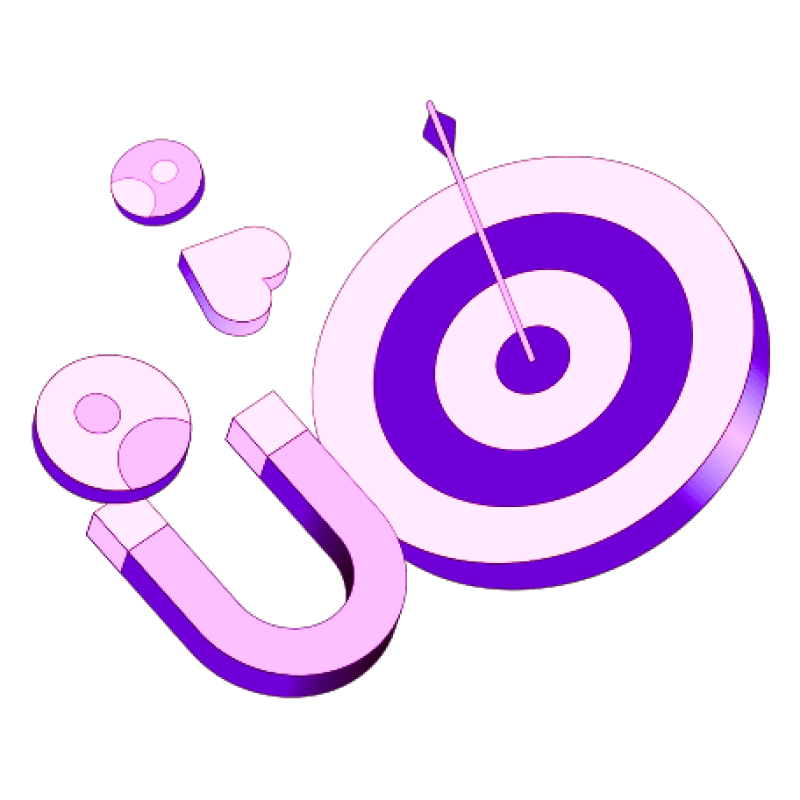Blogs
Articles

How to Set Up CRM Integration for AI Sales Agents: A Step-by-Step Guide
Did you know that 75% of businesses using CRM integration for AI sales agents saw their customer satisfaction improve drastically?
This piece will show you how to set up this game-changing integration step by step. You'll learn to pick the best AI sales assistant software and get the most out of your system - even if you plan to work with a CRM integration agency. Let's take a closer look!
Understanding CRM and AI Sales Agent Integration
CRM AI combines traditional customer relationship management systems with AI capabilities. This powerful mix helps businesses manage customer data and interactions better through smart automation and analysis.
What is CRM AI and how does it work?
CRM AI adds artificial intelligence to standard CRM platforms. The systems can analyze huge amounts of customer data, automate everyday tasks, and predict customer needs accurately. The core technology uses machine learning, natural language processing (NLP), and automation to handle tasks usually done by humans. These systems adapt to new situations and give contextual responses that feel human-like.
The AI-powered CRM constantly analyzes data from many sources like website activity, purchase history, social media interactions, and customer service questions. It spots patterns and trends humans might miss and gives evidence-based insights for better decisions.
Benefits of combining CRM with artificial intelligence
Adding AI to CRM systems brings several advantages to businesses that want to build stronger customer relationships:
Automated routine tasks: AI agents handle data entry, follow-ups, and scheduling. Sales teams spend 70% less time on administrative work
Better data analysis: AI looks at past data and customer behavior to provide deep insights for strategic decisions
Tailored customer experiences: Research shows 71% of consumers want companies to customize their content
Better lead scoring: Companies that use AI-driven lead scoring see 14% better conversion rates
Accurate sales forecasting: AI-powered CRM software predicts sales with 96% accuracy
Why AI sales agents need CRM integration?
AI sales agents are smart applications that learn from sales and customer data to work with minimal human help. These agents need CRM integration because they must access complete, current customer data to work well.
AI sales agents cannot deliver tailored experiences or make accurate predictions without CRM integration. They work like human users in your existing sales tech stack. That's why they need connections to your CRM and sales force automation tools to fit smoothly into the workflow.
Customers get an uninterrupted experience when they interact with AI agents in natural language to share information or book meetings. They benefit from the agent's access to their full history and priorities stored in the CRM.
Choosing the Right Tools and Platforms
The right tools are the foundations of successful CRM integration for AI sales agents. Many options exist in the market, and finding the perfect match depends on your business requirements.
Evaluating CRM compatibility with AI agents
Your CRM platform should have features that support continuous connection with AI agents before implementation begins. The system needs reliable API documentation, event streaming capabilities, and webhook support that lets AI agents interact programmatically. It also needs to be adaptable as your business expands. Strong governance tools help maintain security and control permissions. Integration problems can take extra time and resources to solve.
Top CRM platforms with AI capabilities
Major CRM providers now give you sophisticated AI capabilities:
Salesforce Einstein - Has predictive analytics, automation features, and complete API access that works well for complex enterprise deployments
HubSpot CRM - Has ChatSpot AI integration with clean REST APIs for contacts and deals that suits small to mid-market businesses
Zoho CRM - Has Zia AI assistant for predictive sales analytics, lead scoring, and sentiment analysis at competitive prices for startups
Pipedrive - Has AI Sales Assistant that spots hot leads and optimizes sales pipelines with lightweight, fast APIs
Freshworks - Has Freddy AI for individual-specific customer engagements and chatbot functionality
How to select the best AI sales assistant software?
The best way to choose AI sales assistant software is to solve your urgent sales problems instead of chasing features. Start by listing must-have features that match your goals. Make sure it works well with your current CRM and sales stack.
Look for solutions that provide evidence-based insights beyond simple automation, especially when you have lead scoring, conversation intelligence, and predictive analytics. Good AI sales assistants reduce workloads by handling routine tasks while providing evidence-based feedback. Quality platforms offer free trials or demos, so test the solution before you commit.
Note that AI capabilities in CRM platforms have different costs that need evaluation to match your budget and objectives.
Step-by-Step Process to Set Up CRM Integration
Setting up CRM integration for AI sales agents needs a step-by-step process that works well. You can create a strong system that boosts your sales processes through automation and intelligence by doing this.
1. Define your integration goals
Your current sales process needs analysis to find areas where AI can make the biggest difference. Lead qualification, response time, and individual-specific engagement are common pain points. Your measurable targets should include cutting response time in half or getting 20% more lead conversions. Clear metrics like lead conversion rate and customer satisfaction help track progress and show results.
2. Map your CRM data structure
A detailed list of every system with customer data will help. This includes your main CRM, marketing platforms, and support tools. Each source needs these key details:
Data owners and stakeholders
Systems containing personally identifiable information
Data volume and update frequency
Current data quality problems like duplicates or outdated records
Your field mapping documentation should show how information flows between systems.
3. Choose your AI agent framework
The right framework depends on these vital factors:
Scalability: Knowing how to handle more data and users
Flexibility: Support for different AI algorithms and models
Interoperability: Easy communication between agents and systems
Security: Strong protection for sensitive customer data
4. Connect APIs and authentication
REST or GraphQL APIs create secure connections between your AI platform and CRM. Your CRM generates API credentials that go into your AI system's integration settings. OAuth 2.0 with proper scopes handles access control - don't store long-lived tokens. Customer information needs careful field mapping to sync correctly.
5. Test and verify the integration
Different scenarios need testing: standard cases with expected data formats, unusual edge cases, and error cases that copy API failures. Each integration point needs verification. Your continuous monitoring should track sync speed, error rates, and data freshness.
6. Train your team on the new system
Role-specific training works better than general sessions. Your team needs documented workflows, tutorial videos, and hands-on practice with the integrated system. The focus should be on how AI helps human work rather than replacing it - this ensures everyone uses it successfully.
Optimizing and Maintaining Your AI-CRM System
Your AI sales agents' successful integration with the CRM system needs proper maintenance to succeed long-term. A recent study shows 78% of executives have plans to scale generative AI into customer experiences. However, 56% still lack proper processes to review AI output and fix problems.
Monitoring performance and lead quality
Your AI-CRM system needs regular evaluation of key metrics to work at its best. Teams should review conversion rates, sales revenue, and customer satisfaction weekly against pre-AI measures to spot areas needing improvement. The AI analyzes past customer data and assigns scores based on how likely they are to convert. This helps sales teams focus on promising prospects. A reliable monitoring system prevents poor lead quality and keeps data flowing smoothly between AI and CRM.
Using feedback loops to improve AI behavior
The foundation of continuous AI improvement lies in feedback loops. These smart algorithms spot errors in AI outputs and feed corrections back into the model. This teaches it to avoid making similar mistakes. Your AI models need regular retraining with fresh customer data as your business grows to stay accurate. To cite an instance, quick, frequent feedback cycles that include input from all stakeholders will improve the model's performance. This creates an ongoing improvement cycle that adapts to market changes and customer's shifting needs.
Ensuring data privacy and compliance
The average data breach cost hit $4.88 million in 2024, making customer information protection vital. Your system needs data minimization strategies, encryption protocols, and strict access controls to protect sensitive data. The system should also make customer data anonymous before AI analysis to lower breach risks. Regular security audits and complete data governance frameworks help companies follow GDPR and CCPA regulations.
The right time to work with a CRM integration agency
Your company might need professional help during complex setups, data moves, or when you lack technical expertise in-house. The integration process can become overwhelming, especially with data privacy and regulatory rules. A seasoned agency brings technical knowledge to guide you through these challenges and make implementation successful. Pick agencies that have proven success with both AI and CRM integration to get the most from your system.
Conclusion
AI sales agents integrated with your CRM system will change modern sales operations. This piece shows how this powerful combination can boost productivity and reduce administrative tasks that take up nearly 70% of sales representatives' time.
A clear roadmap leads to successful implementation through our step-by-step process - from setting integration goals to system maintenance. The right selection of compatible tools creates the foundation, while proper data mapping lets your AI agents work with accurate, complete customer information.
Your system needs continuous monitoring after implementation. Performance analysis and feedback loops help AI sales agents get better over time. On top of that, it needs strict data privacy measures to protect your business and customers from potential breaches.
The sales future belongs to businesses that blend human expertise with AI capabilities. This guide positions you to join organizations that make use of this powerful combination to stimulate growth and deliver exceptional customer experiences.
Key Takeaways
Successful CRM-AI integration transforms sales operations by automating administrative tasks and delivering intelligent customer insights that drive measurable business growth.
• Define clear integration goals and map your CRM data structure before selecting AI frameworks to ensure seamless system compatibility and optimal performance.
• Choose CRM platforms with robust API capabilities like Salesforce Einstein or HubSpot that support AI agent integration and scalable growth requirements.
• Implement secure API connections with OAuth 2.0 authentication, then thoroughly test all integration points before training your team on the new system.
• Monitor key performance metrics weekly and establish feedback loops to continuously improve AI behavior while maintaining strict data privacy compliance.
• Consider professional CRM integration agencies for complex configurations or when lacking in-house technical expertise to maximize system potential.

Create Your Free Persana Account Today
Join 5000+ GTM leaders who are using Persana for their outbound needs.
How Persana increases your sales results
One of the most effective ways to ensure sales cycle consistency is by using AI-driven automation. A solution like Persana, and its AI SDR - Nia, helps you streamline significant parts of your sales process, including prospecting, outreach personalization, and follow-up.



